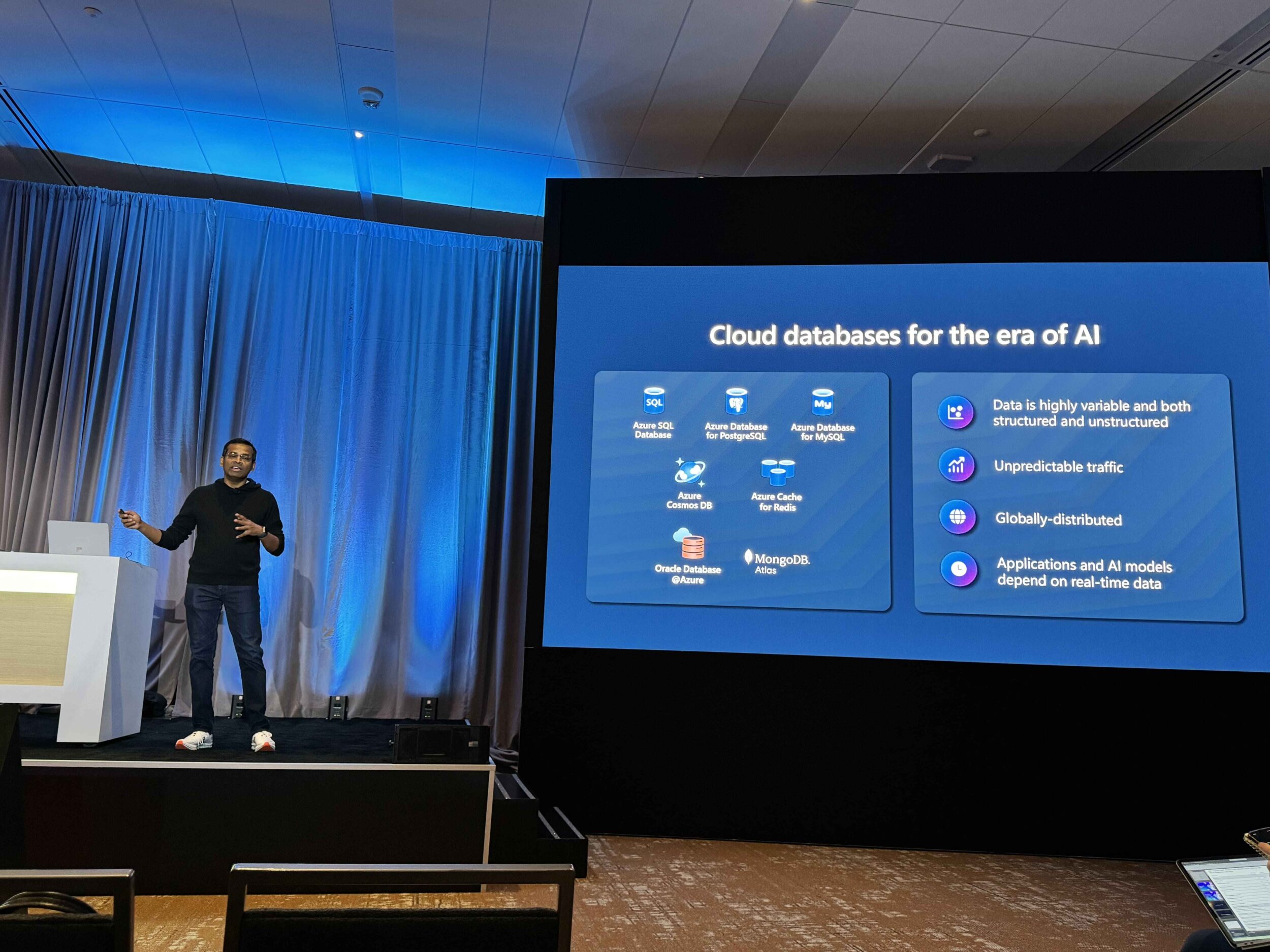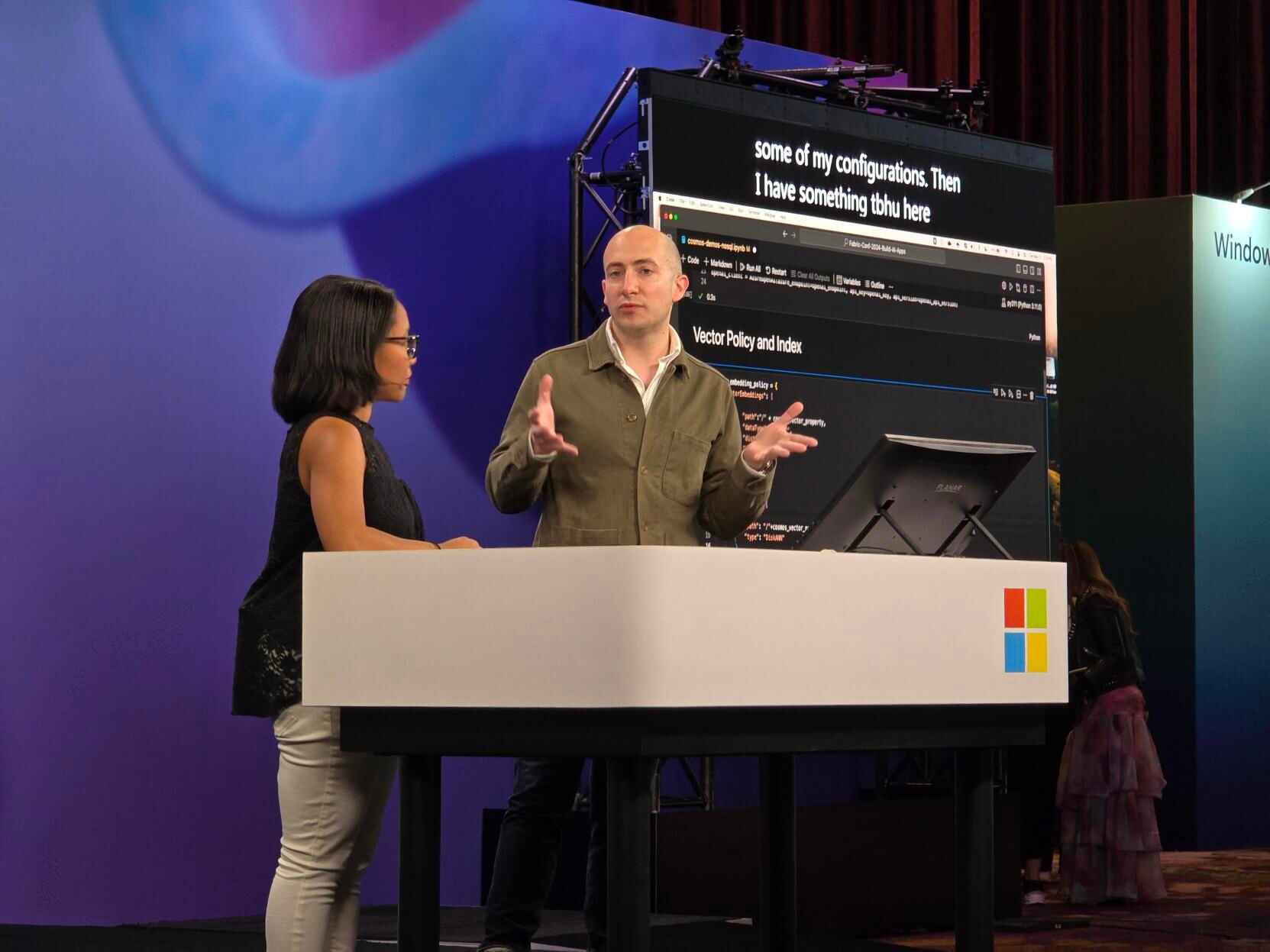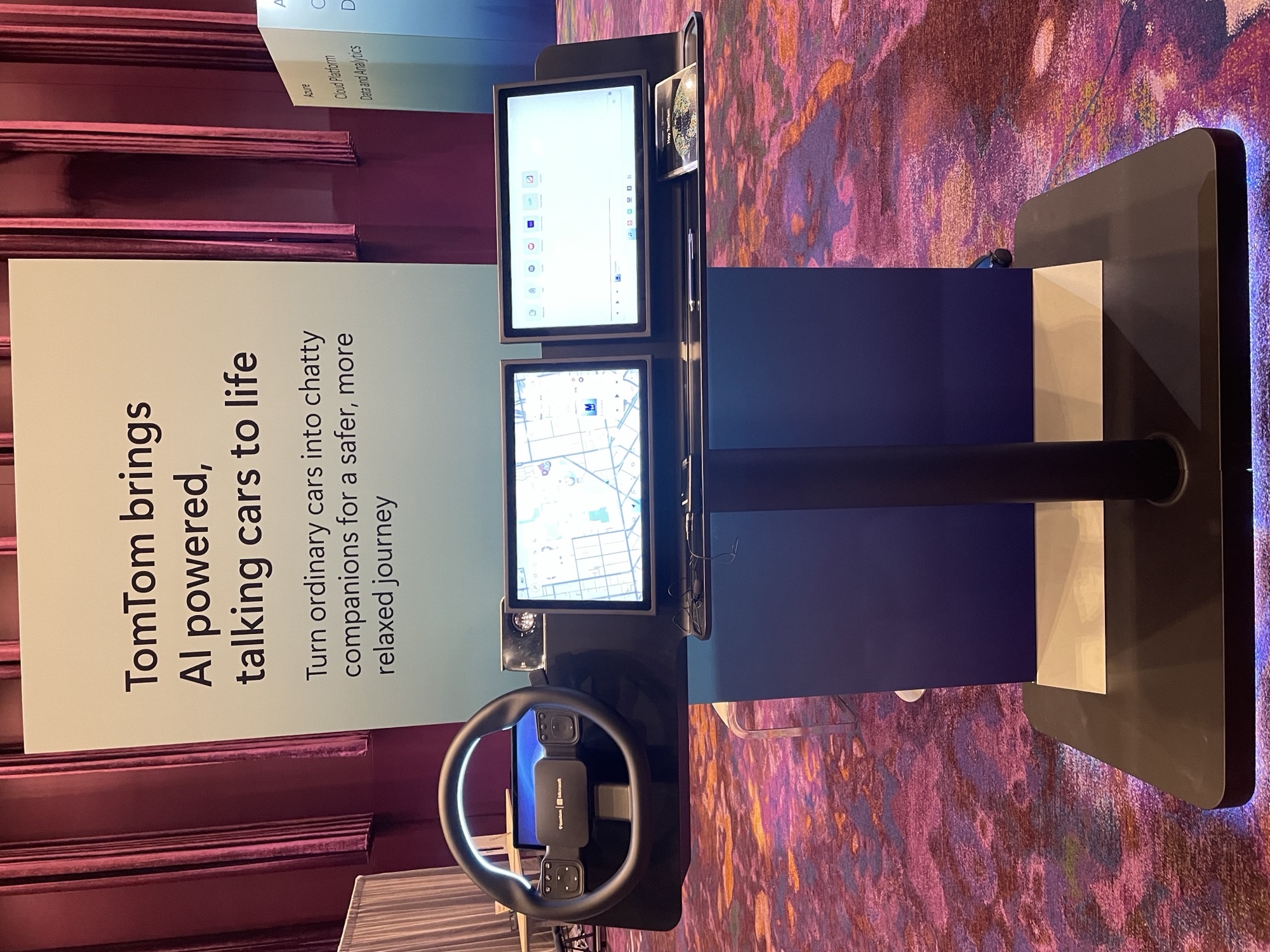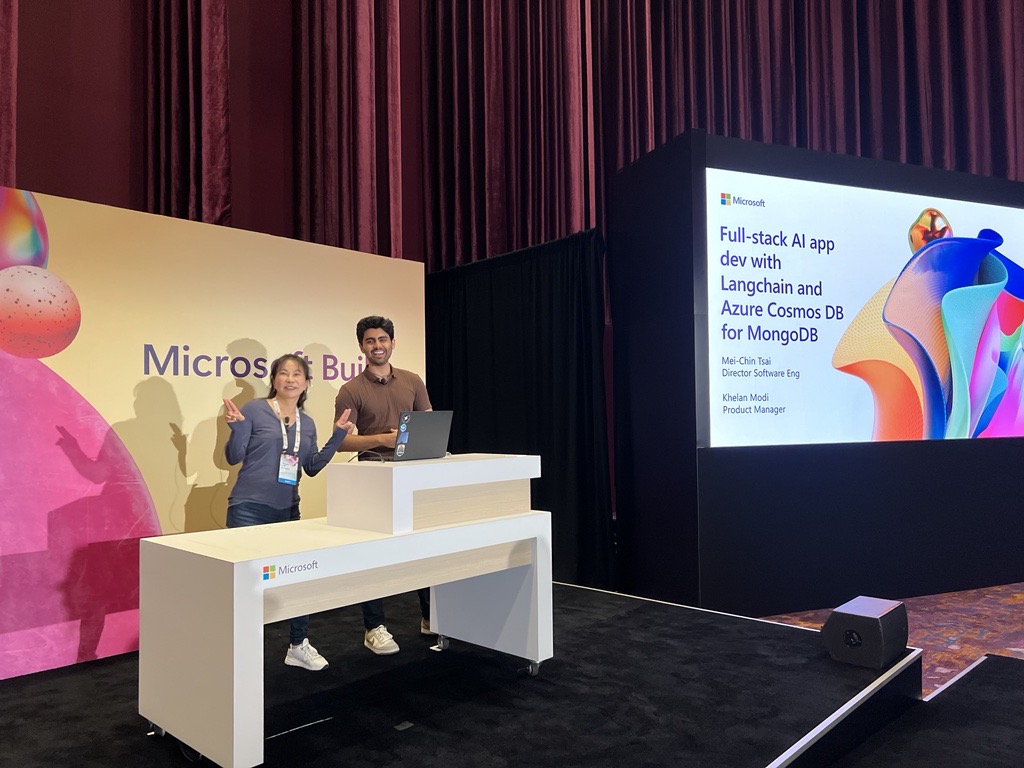Microsoft Build 2024 kicked off this week aiming to answer the question “How will AI shape your future?” You’ll find the answer in the incredible lineup of sessions at this year’s event – featuring talks on generative AI, building copilots, cloud platforms, low-code, and much, much more. The power of cloud scale data – the foundation for transformative AI experiences – has also been highlighted across sessions. Among the biggest data announcements at Build on day one, Microsoft CVP for Azure Data Arun Ulagaratchagan introduced a new era of cloud databases, built for AI apps at any scale, anywhere. These new databases feature hyperscale performance, built-in intelligence, integrated vector databases, and AI integrations to accelerate AI innovation and make app development easier. Azure Cosmos DB is at the forefront of these technologies, an essential tool for any developer who wants to harness the potential of AI. At this year’s Build, we announced several new enhancements to Azure Cosmos DB, and our customers – who are solving real-world challenges with data and AI – will bring these features to life in their sessions.

Take a look at what we announced on day one of Build and what’s coming this week.
Accelerated AI app development
Now in public preview, Azure Cosmos DB for NoSQL features built-in vector indexing. Vector embeddings stored in Azure Cosmos DB for NoSQL enable developers to determine the similarity between text strings, and are foundational for building generative AI apps. This capability also eliminates the need to use and maintain a separate vector database. Powered by DiskANN, a suite of state-of-the-art vector indexing algorithms developed by Microsoft Research, Azure Cosmos DB for NoSQL provides highly performant and highly accurate vector search at any scale. With semantic search powered by DiskANN, Azure Cosmos DB becomes the first cloud database to offer SLA-guaranteed low latency at scale with vector database built-in.
Shireesh Thota, CVP for Azure Databases, and Arun Ulag, CVP of Azure Data, announced vector search in Azure Cosmos DB for NoSQL during their session, “Power the next generation of AI apps with databases at scale anywhere” (BRK167). Sharing Azure’s vision for cloud scale data, Shireesh and Arun discussed how Azure Cosmos DB, together with Azure’s family of managed databases, have evolved to simplify developer experiences and accelerate AI transformation. Catch a snippet of the session below.
Azure Cosmos DB expert James Codella also took the stage in a Build Live segment to showcase vector search and DiskANN in Azure Cosmos DB. His session, “Scalable RAG with Azure Cosmos DB and DiskANN” looked at how to build gen AI applications with high precision and low latency vector search at scale.

Upcoming sessions
Coming up this week, for in-person Build attendees, James and Sr. Cloud Advocate Jasmine Greenaway will demo Azure Cosmos DB vector database capabilities on Thursday, May 23, 1:30-1:45 PM PST, in session “Build scalable chat history and conversational memory into LLM apps” (DEM737).
For those tuning in either online or in person, don’t miss our top breakout session with Azure Cosmos DB customer TomTom, which will include a look at DiskANN-powered vector database capabilities for building AI apps. In the session, titled “TomTom brings AI-powered, talking cars to life with Azure” (BRK121), happening Wednesday, May 22, at 2:15-3 PM PST, TomTom’s Massi Ungheretti will share how his team built an AI automotive assistant that engages drivers in natural conversations and tackles complex driver requests. Get the ultimate demo experience of the TomTom Digital Cockpit, shown on a simulated car cockpit, at the Expert Meet Up “Cloud Platform” zone. Make sure to swing by the station on the 5th floor of the Summit building throughout the week to see this intelligent assistant in action. See a map of the Expert Meetup area.

Demonstrating how AI can be used in Azure Cosmos DB to speed up app development, Jasmine Greenaway and Sr. Product Manager Meredith Moore will show how to use Microsoft Copilot in Azure to help write NoSQL queries over complex JSON, and then optimize these queries using the index advisor. Attend the demo, “Use AI to build cloud-native apps faster with Azure Cosmos DB” (DEM736) on May 22, 2:15 PM PST.
Shireesh Thota will return to the stage on Thursday, May 23, 8:30 AM PST to talk about Microsoft Copilot in Azure capabilities across Azure Databases, including Azure Cosmos DB. The session, “The power of AI and Copilot for Azure Databases” (BRK171), will feature new capabilities and demos showing how Copilot in Azure is transforming the database experience.
Finally, looking to build a generative AI chat app? Those who missed our lab on “Integrate Azure OpenAI Service and Azure Cosmos DB for copilot apps” on day one of Build can attend a repeat session on May 22 and May 23. Led by product experts Justine Cocchi and Sajeetharan Sinnathurai, the lab gives participants practical insights on how to construct an LLM pipeline and manage chat history for conversational context.
Simplified and flexible developer experience
Today we also announced several capabilities to further streamline the developer experience in Azure Cosmos DB.
We’re excited to share that users can now easily transition their serverless Azure Cosmos DB accounts to provisioned capacity mode. With this new feature, transition can be accomplished seamlessly through the Azure portal or Azure CLI. During this migration process, the account will undergo changes in-place and users will retain full access to Azure Cosmos DB containers for data read and write operations.
Cross-region replication in vCore-based Azure Cosmos DB for MongoDB is also now available in preview. With this feature, a cluster replica can be created in another region. This cluster replica is continuously updated with the data written in the primary region, and is also available for reads. The read replica feature helps to improve the performance and scale of read-intensive workloads. In a rare case of outage in the primary region and primary cluster unavailability, this replica can be promoted to become the new read-write cluster in another region. Connection string is preserved after such a promotion, so that applications can continue to read and write to the database in another region using the same connection string.
Additional announcements for Azure Cosmos DB for MongoDB included support for Mongo 7.0 and support for geospatial queries in vCore-based Azure Cosmos DB for MongoDB. Learn more about these updates.
In-person attendees at Build had a chance to see a demo on “Full-stack AI app dev with Langchain and Azure Cosmos DB for MongoDB” (DEM714) today, where product experts Khelan Modi and Mei-Chin Tsai showed how to build an AI app using Langchain LLM orchestration and Azure Cosmos DB for MongoDB.

Upcoming sessions
For in-person attendees who want to get hands-on experience building an AI app with Azure Cosmos DB for MongoDB, be sure to sign up for one of two remaining lab sessions this week on “Build AI Apps with Azure Cosmos DB for MongoDB and Semantic Kernel” (LAB330). The lab will be repeated every day of Build, and will show participants how to create a RAG pattern app over transactional data and manage chat history with semantic cache.

Azure Cosmos DB is the go-to database for developers wanting to focus on innovation rather than on database operations. But don’t take our word for it – hear first-hand how Kinectify, an anti-money laundering technology company, uses Azure Cosmos DB to boost their developer productivity and reduce app latency, in breakout session “Design and build multi-tenant SaaS apps at scale with Azure Cosmos DB” (BRK161) on May 22, 3:30 PM PST. Kinectify CTO Mike Calvin will join Azure Cosmos DB product experts Deborah Chen and Tara Bhatia on stage to share best practices for how to design and optimize multi-tenant SaaS apps with Azure Cosmos DB. Don’t miss this session, live in-person and online, if you want to enhance your SaaS architecture. And don’t forget to check out Kinectify’s journey in building their AI-powered app with Azure here!
Lastly, in addition to the features above, we’re also excited to share these Azure Cosmos DB improvements to help developers build high-performing and responsive apps with ease:
- Go SDK for Azure Cosmos DB (generally available): We announced the general availability of the Azure Cosmos DB Go SDK and its features, including multi-region support, high availability, and improved request diagnostic. Learn more.
- Azure Cosmos DB Vercel integration (generally available): Developers using Vercel can now easily integrate with Azure Cosmos DB, and easily connect to an existing database or create a new one, improving productivity and onboarding to Azure Cosmos DB. Learn more.
——————-
Haven’t registered for Build yet? You can still catch many more exciting sessions and announcements online throughout the week. Get your online pass here for free! And if you’re attending in-person, drop by our Azure Cosmos DB booth in the “Data and Analytics” Expert Zone on the 5th floor, and meet with our experts. See you there!


0 comments